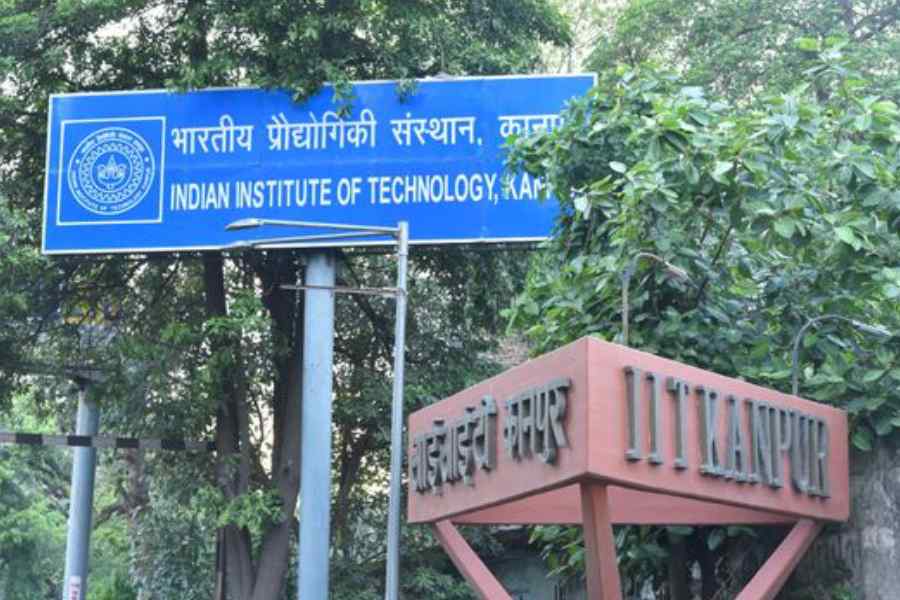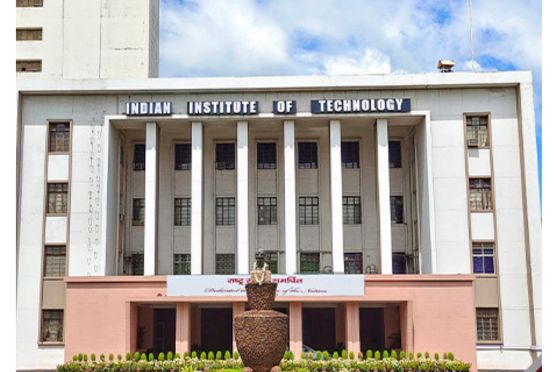Certain companies conducting campus placement interviews at the IITs have asked students to mention their caste background or the ranks they secured in the Joint Entrance Examination three years ago, attracting allegations of promoting discrimination.
Students have accused the IIT administrations of complicity, flagging their failure to prevent the companies from asking candidates to specify which community they belong to — data that some believe can constitute a “potential career risk” for students from the Scheduled Castes, Scheduled Tribes and Other Backward Classes.
Some SC and ST students at the IITs in Kanpur and Guwahati raised these concerns after the forms they were asked to submit to appear in the campus placement interviews sought their ranks in the JEE Advanced and their community details.
For example, forms that Larsen & Toubro (L&T) circulated among IIT Kanpur students sought their caste data.
Niva Bupa and Merilytics sought the ranks secured by IIT Kanpur students in the JEE Advanced, which they had taken in 2020.
Jaguar and Land Rover (JLR) sought the JEE ranks of students of IIT Guwahati.
The campus placement process, in which fourth-year BTech students participate, is currently on at the IITs. Not all the companies taking part asked questions about caste or JEE ranks.
SC and ST students are worried that their JEE ranks would reveal to their prospective employers whether they had gained admission to the IITs under the reserved categories, whose marks cut-offs are lower than that for general category students.
They fear the data may be used to discriminate against them during the placement process, and possibly later in the workplace. The students have expressed their concerns in various WhatsApp groups.
Dheeraj Singh, a former IIT Kanpur student who is now an activist, has filed separate complaints with the SC and ST commissions and the education ministry alleging the IITs are hand in glove with the companies in their alleged bid to practise caste discrimination.
“When jobs are given based on engineering knowledge, how is the four-year JEE data relevant?” Singh told The Telegraph.
“Many of them (reserved category students) have scored Cumulative Grade Point Averages (CGPAs) of nearly eight. Now they will be easily identified as belonging to reserved categories from their JEE ranks.”
Singh added: “The data of JEE rank or social background can be used to weed out SC and ST students during the selection process. The data can be misused in future at the workplace. This is breach of privacy too.”
Singh and some other alumni said that some companies seek such information every year but the students have rarely protested before.
A few years ago, there was a protest at IIT Kanpur when a company prevented candidates below a certain rank on the common merit list of the JEE Advanced from applying. This left out most SC and ST students. After the protests, then IIT director Abhay Karandikar intervened and the company revised its eligibility criteria.
A 2023 graduate who took part in the placement process last year said many students from disadvantaged communities “do not fill in these forms because of a certain shame”, however unwarranted, and therefore lose out on placement opportunities.
In his complaint, Singh has asked the SC commission to direct the IITs to ensure that no company can force students to reveal their social background or JEE rank unless the recruiting companies are providing reservation benefits.
Anil Wagde, an Atlanta-based IT employee who has worked with various Indian corporate houses, said Indian companies have a poor record in ensuring social diversity in their workforce.
“I’m ready to give them the benefit of the doubt that they are doing it for positive discrimination. But how do I know that the data will not be leaked or misused?” he said.
“I don’t want to question their intent. But I want to know if they have any robust mechanism against the misuse of sensitive data of workers. Do they have any anti-discrimination policy, do they have data to show proportionate representation of diverse social groups in their workforce?”
Wagde said that several cases relating to caste discrimination had been registered in California in the last five years. In 2020, a Dalit worker with the IT firm Cisco was transferred from a project allegedly after his Indian senior learnt about his caste. The employee has filed a case with the California civil rights department.
“In the US, corporate entities do collect data if any worker is a veteran or physically challenged. Such data is used for positive discrimination,” Wagde said.
“They have a transparent policy on non-discrimination. But we are yet to see such commitment to inclusion among Indian companies.”
Niva Bupa and Merilytics did not respond to email queries seeking their perspectives on the allegations.
L&T’s chief communications officer, Sumeet Chatterjee, said the company is committed to fostering an inclusive and diverse workplace, upholding the principles of equal opportunity and non-discrimination based on factors such as caste, creed, colour or sexual orientation.
“Meritocracy is at the core of our hiring practices, ensuring that talent and competence are the driving factors in our recruitment decisions. Our longstanding commitment to diversity and inclusion is evident in our early initiatives, such as the recruitment of women post-maternity, the inclusion of transgender individuals, and the hiring of retired armed forces personnel,” he wrote in an email response.
“We vehemently reject any allegations that suggest otherwise, as they constitute a gross misrepresentation of the facts. It is our belief that such claims may be driven by an intention to tarnish the sterling reputation we have diligently built over several decades. At L&T, we remain steadfast in our dedication to maintaining a workplace that is fair, inclusive, and built on a foundation of trust and respect for all.”
An official statement issued by a JLR spokesperson said: “JLR categorically refutes any allegation about the misuse of candidate data, against any candidate, for any reason during our selection processes. JLR is as an equal opportunity employer, committed to fostering a diverse, inclusive workplace representing the societies in which we operate around the world.
“We aspire to hire the best engineering talent for our engineering and process excellence centre in India and follow a holistic three-step process that comprehensively evaluates each candidate’s talent and potential via a robust quantitative and qualitative framework with due weightage.”











